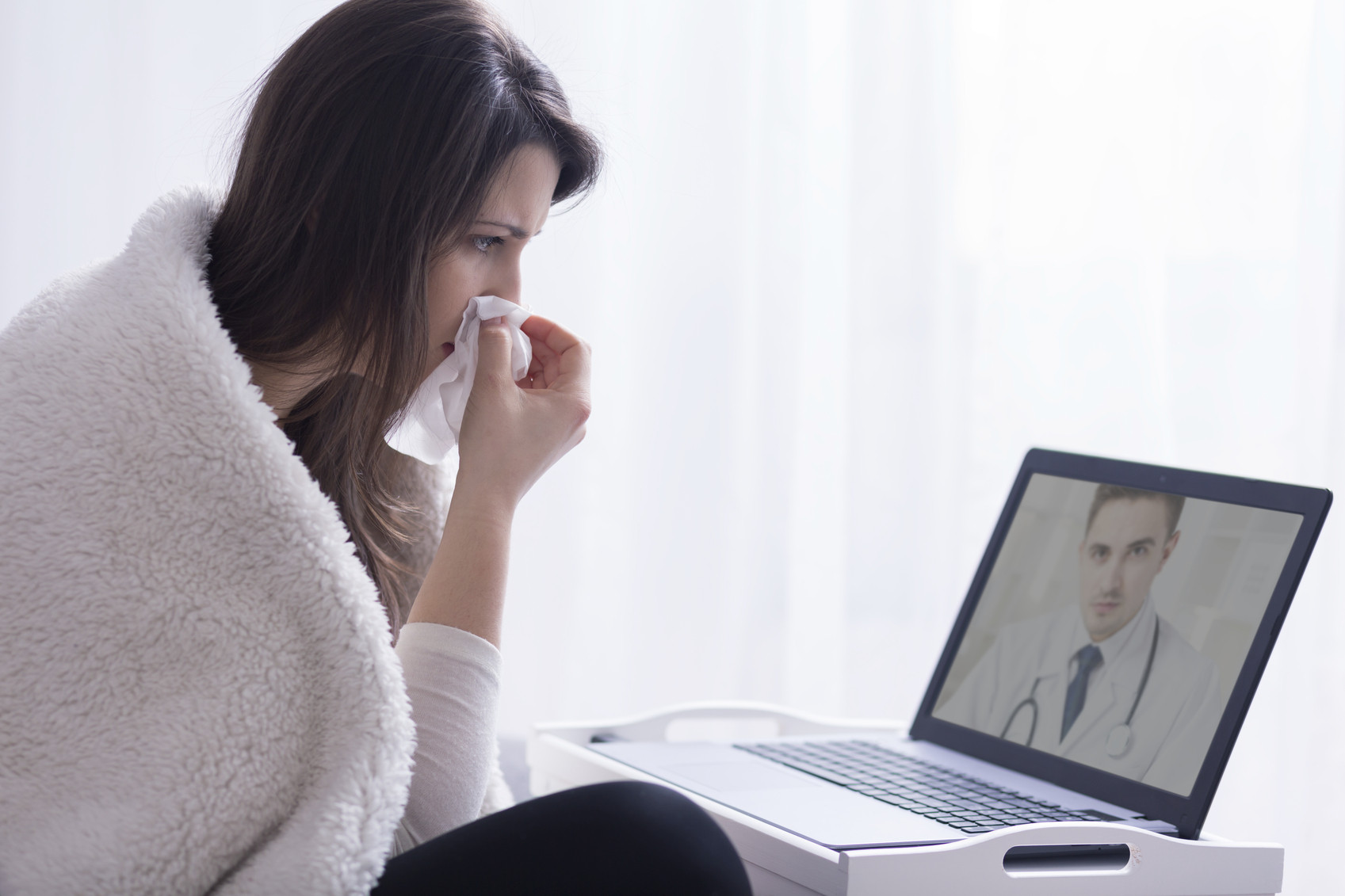
New thinking about plaque in arteries that feed the brain

Want to prevent shifting teeth? Maybe you need retainers

What you need to know about the new dietary guidelines

Food that’s healthier for people and planet can be cheaper, too

New evidence that polyphenol-rich foods help the heart

8 simple ways to reduce ultra-processed foods in your diet

How to curb your stress eating

How to spot Parkinson’s disease symptoms

Heart failure symptoms in women: How they’re different

GERD diet: Foods to avoid to reduce acid reflux
Staying Healthy Archive
Articles
Working with a geriatric-care manager
Image: Bigstock
When you're exploring a foreign country, a guide who knows the terrain well can help immensely. That's just as true when entering the foreign territory of caregiving. Here, a geriatric-care manager can provide invaluable assistance for individuals and families facing challenging care decisions.
Geriatric-care managers come from diverse backgrounds, from nursing and social work to gerontology. These professionals can help navigate the tangles of family dynamics, round up medical care and necessary services, keep medical personnel on the same page, and cut through the baffling red tape of private businesses and government bureaucracies.
Want healthy feet? Keep a healthy weight
Image: ASIFE/ iStock
Being overweight can lead to a host of health problems, from high blood pressure and heart disease to arthritis, gallstones, and sleep apnea. It can also contribute to foot problems in two ways.
First, excess weight contributes to the misery of common structural problems such as heel pain and arthritis. Any foot ailment is more painful the more weight you put on it. Second, excess pounds increase your chances of developing atherosclerosis, poor circulation, and diabetes — all of which can damage your feet.
Good old-fashioned mobility insurance: Protecting your feet and ankles
Seeking treatment that allows early detection of problems can help save you from prolonged disability.
Image: Wavebreakmedia/ Thinkstock
One of the most important means of transportation and independence protection in older age is often overlooked: the health of your feet and ankles. Maybe you can't reach your feet anymore, or you chalk up foot and ankle pain to aging. But ignoring foot or ankle problems may lead to long periods of unnecessary disability, including the loss of activities you take for granted, such as driving a car, carrying groceries, or playing with your kids or grandkids outdoors. "Unfortunately, it remains common that people seek our care too late—long after we are able to have the substantive impact we are used to providing," says Dr. Christopher DiGiovanni, chief of foot and ankle surgery at Harvard-affiliated Massachusetts General Hospital.
Overlooked problems
Treatment
Available fixes depend on the problem and its severity. All of these early interventions can often spare you from difficulty walking in the future.
For plantar fasciitis, effective treatment may involve nighttime splinting, stretching exercises, anti-inflammatory medicine, or even a steroid injection.
For Achilles tendinitis, rest, ice, elevation, physical therapy, shoe modifications, and even topical creams or shock wave treatment can be helpful for avoiding surgery.
Flat feet typically benefit from good orthotics for the arch, switching from high-impact activities (such as running) to low-impact activities (such as swimming or yoga), supportive shoes, and sometimes reconstructive surgery.
Bunions that become progressively bothersome may need surgery.
Treatment for ingrown toenails ranges from warm soaks, shoe changes, and antibiotic creams to removal of the offending portion of the nail.
Most sprained ankles respond well to early rehabilitation and therapy.
Prevent problems now
Virtual doctor visits: A new kind of house call
A doctor shows up on your computer or smartphone, not your doorstep. Should you try it?
Image: AndreyPopov/ Thinkstock
Getting a doctor's advice no longer requires a visit to the exam room. Thanks to videoconferencing applications (apps) for smartphones, tablets, and home computers, you can experience a virtual visit with a physician at any time, day or night. "The convenience factor is striking. You're home sick, and 24/7 you can see a doctor on your electronics," explains Dr. Ateev Mehrotra, an internist and a Harvard Medical School researcher who studies new ways of delivering health care.
Not just a fad
Quality of care
Physicians who take part in virtual visits are vetted. They're assigned to you based on where you live, they are licensed in your state, they're board-certified, they carry malpractice insurance, and they can even order tests and prescriptions for you. But without seeing you in person, their ability to assess you is limited. "The physician can look at your rash, but can't examine the back of your throat or listen to your lungs. If it's a virtual visit for depression, it probably doesn't make a difference. But if you're having abdominal pain, you really need a doctor who can perform a physical examination," says Dr. Mehrotra.
Studies on virtual visits have been mixed. For example, antibiotics may not be prescribed as appropriately during virtual visits as during in-person visits. "And it appears that physicians are much less likely to order a test you may need, which could be a problem if you have strep throat," says Dr. Mehrotra.
When to try a visit
Choking alert: Strategies for safe swallowing
Therapy, exercises, and changes in eating habits will help keep you safe.
Image: nyul/ iStock
It used to be so easy to munch a handful of nuts: chew, swallow, enjoy. Now, you avoid them or make sure there's a glass of water nearby when you eat nuts or any other foods that seem to get stuck in your throat. "It's normal to have some age-related changes with swallowing or occasional difficulty swallowing. What's not normal is when food or liquids get into the lungs regularly," says Semra Koymen, a speech-language pathologist at Harvard-affiliated Brigham and Women's Hospital.
Causes and symptoms
Diagnosis
A speech pathologist's evaluation of dysphagia includes an exam of your mouth and tongue, consideration of your medical history and symptoms, and most likely a test in the radiology department called a video swallow study. It's done using a fluoroscopean x-ray machine that takes moving pictures. You swallow a variety of liquids and foods mixed with barium, a substance that shows up on x-rays. "As you swallow, we can see the material move through the mouth and throat and into the esophagus," says Koymen.
Treatment
Benefits of volunteering: This may be the time to cash in
A study published online Aug. 8, 2016, by BMJ Open found that volunteering seems to confer greater benefits for general well-being in middle and older age than earlier in life.
Fatty liver disease and your heart
About one in three adults has nonalcoholic fatty liver disease, an often-silent condition closely linked to heart disease.
Image: decade3d/ iStock
The largest organ inside your body, your liver performs hundreds of vital functions. It converts food into fuel, processes cholesterol, clears harmful toxins from the blood, and makes proteins that help your blood clot, to name a few. But an alarming number of Americans have a potentially dangerous accumulation of fat inside their livers. Known as nonalcoholic fatty liver disease (NAFLD), this condition is a leading cause of chronic liver disease in the United States—and an increasingly recognized contributor to heart disease.
"NAFLD increases the risk of heart disease independent of other traditional risk factors such as high blood pressure and cholesterol," says Dr. Kathleen Corey, director of the Fatty Liver Disease Clinic at Massachusetts General Hospital. Among people with NAFLD, heart disease is the top killer, accounting for more than 25% of deaths.

New thinking about plaque in arteries that feed the brain

Want to prevent shifting teeth? Maybe you need retainers

What you need to know about the new dietary guidelines

Food that’s healthier for people and planet can be cheaper, too

New evidence that polyphenol-rich foods help the heart

8 simple ways to reduce ultra-processed foods in your diet

How to curb your stress eating

How to spot Parkinson’s disease symptoms

Heart failure symptoms in women: How they’re different

GERD diet: Foods to avoid to reduce acid reflux
Free Healthbeat Signup
Get the latest in health news delivered to your inbox!
Sign Up











